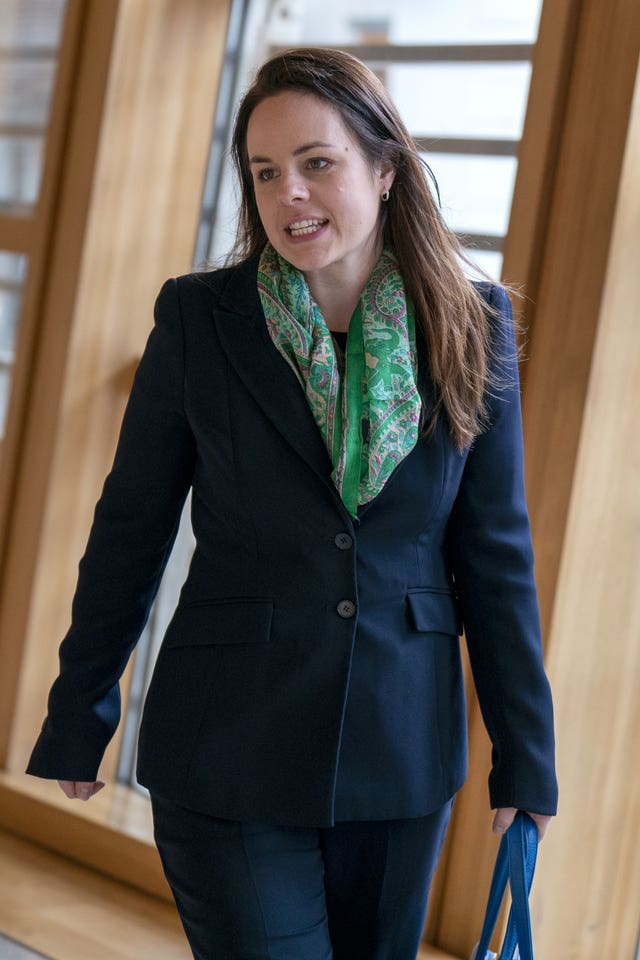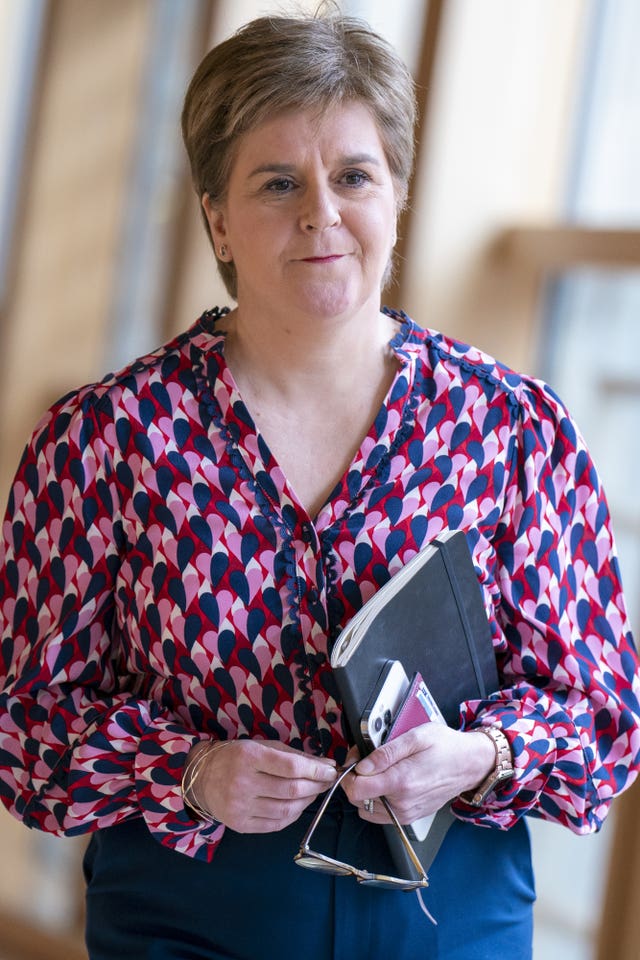SNP to retain just 15 of 43 seats with Labour set to overtake in Scotland: poll
It also says John Swinney is the popular choice as next first minister for Scotland.

The SNP will retain just 15 of its current 43 seats at the forthcoming general election, according to a new poll for the Sunday Times.
The forecast comes as Humza Yousaf announced his resignation as First Minister on Monday after he abruptly ended the Bute House Agreement with the Scottish Green Party.
The Sunday Times poll, by Norstat – formerly known as Panelbase, is one of the first of its kind since Mr Yousaf announced his resignation, and looked at voting intentions for both Westminster and Holyrood.
It found that while support for independence remains largely unchanged, Labour is set to overtake the SNP at both Westminster and Holyrood, bringing an end to the SNP’s streak of four consecutive election victories.
The survey comes as John Swinney is now expected to become first minister on Tuesday, provided no other challengers enter the race.
When asked who would make the best first minister from a list of SNP candidates, Mr Swinney and Kate Forbes were neck and neck with the public on 23%, although Ms Forbes has said she will not be standing.

Stephen Flynn, the SNP leader at Westminster, was backed by 7%, and Jenny Gilruth, the Scottish education secretary, scored just 2%.
The SNP vote share in a Westminster election would fall to its lowest level since the 2014 independence referendum, the poll says.
The party would hold just 15 of its 43 seats with Scottish Labour winning 28 – a dramatic increase from its current two.
According to the Sunday Times poll, the SNP would attract votes from 29% of the electorate – a fall of three points in a month, while Labour’s share increased by two points to 34%.
This would return 15 SNP MPs and amount to a significant reversal in electoral performance.
Under Nicola Sturgeon, the SNP became the third largest party at Westminster, winning 56 of 59 Scottish seats in 2015.

There are currently 43 SNP MPs at Westminster.
The Scottish Conservatives, whose vote share remained at 16% in the poll, would add three seats to return nine MPs – while the Liberal Democrats, on 8%, would boost their yield by one to five MPs.
Support for independence remains evenly balanced, with 48% in favour of Scotland leaving the UK and 52% backing the Union.
Voting intentions at Holyrood show the SNP remains a point ahead of Labour in the constituency vote at 34%.
The Conservatives would pick up 14% of the vote, the Lib Dems 9% and the Greens 5% – with the remaining 5% to other parties.
But Scottish Labour has edged a point ahead of the SNP on the more proportional regional list vote with the nationalists’ return of 27%.
The Tories would win 17% of regional votes, the Greens 9%, Lib Dems 8%, Reform UK 6% and Alex Salmond’s Alba Party 4%.
An analysis by polling expert Sir John Curtice for the Sunday Times found that this result would leave Labour as the largest party at Holyrood with 40 seats.
The remainder of the chamber would be 38 for the SNP, 24 Conservatives, 10 Greens, nine Lib Dems and eight Reform parliamentarians.
This would mark a historic breakthrough for Nigel Farage’s party in Scotland as it at least partially replicates its gains in England by attracting some older, Brexit-supporting Tories north of the border.
Sir John, professor of politics at Strathclyde University – who compiled the seat projections, said the “question that now arises is whether the coronation of John Swinney will enable the SNP to turn the page”.
He added: “Even among those who said they would vote Yes in another independence referendum, only 56% said they were now willing to back the SNP for Westminster, as would only two-thirds who voted for the party in 2019.”
Norstat interviewed 1,086 people aged 16 or over in Scotland between April 30 and May 3.
SNP depute leader Keith Brown commented: “After 14 years of cruel Tory governments inflicting endless damage on Scotland and Keir Starmer’s Labour offering no meaningful alternative, it’s clear only the SNP and independence offers a better future for our country.
“The SNP is the only party standing up for the priorities of people across Scotland and offering a positive vision for the future where decisions about Scotland are made in Scotland.
“At the general election Scottish voters have the chance to reject the cosy status quo of a broken Westminster system that is failing them and vote to elect SNP MPs who will always stand up for their interests”.





